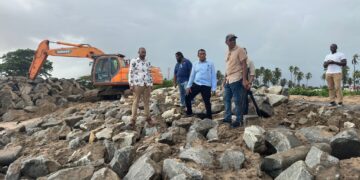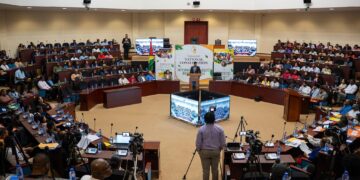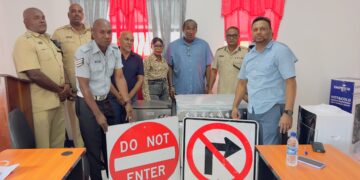In a recent statement, the Caribbean Community (CARICOM) expressed its deep concern over the decision by the Venezuelan National Assembly to conduct a popular referendum on the territorial dispute involving the Essequibo region, which is claimed by both Venezuela and the Cooperative Republic of Guyana.
CARICOM acknowledges that the referendum, if answered in the affirmative, would grant authorization to the government of the Bolivarian Republic of Venezuela to annex territory that is an integral part of Guyana, and to establish a state within Venezuela known as Guyana Essequibo. Such a move is viewed by CARICOM as a violation of international law, which strictly prohibits one state from unilaterally seizing, annexing, or incorporating the territory of another.
Of particular concern to CARICOM is the potential consequences of a “yes” vote in the referendum. Two of the questions posed in the referendum seem to endorse Venezuela’s stance on the issue “by all means, according to/with the Law.” CARICOM suggests that this wording could be interpreted as implying the use of force or military action to achieve their objectives, which goes against the long-standing position of Latin American and Caribbean countries, including Venezuela, to maintain the region as a zone of peace.
The disputed land and water in question, the Essequibo Region of Guyana, constitutes more than two-thirds of the entire territory of Guyana itself. CARICOM firmly believes that the referendum proposed by Venezuela holds no validity, bearing, or standing in international law concerning the dispute. While the referendum is considered a domestic construct by CARICOM, it is concerned that the potential outcome could destabilize peace, security, and tranquility in the region.
CARICOM reaffirms its support for a peaceful and judicial resolution to the dispute. The international organization expresses hope that Venezuela will fully engage in the ongoing legal process before the International Court of Justice, which has the jurisdiction to determine the validity of the 1899 Arbitral Award, a point of contention for Venezuela. CARICOM emphasizes that the Court’s final decision will provide a peaceful, equitable, and internationally lawful resolution to the long-standing territorial conflict.
The issue remains a source of tension in the region, and CARICOM calls upon all parties to prioritize peaceful dialogue and adherence to international law to resolve the Essequibo dispute and uphold the principles of regional stability and cooperation.


















































